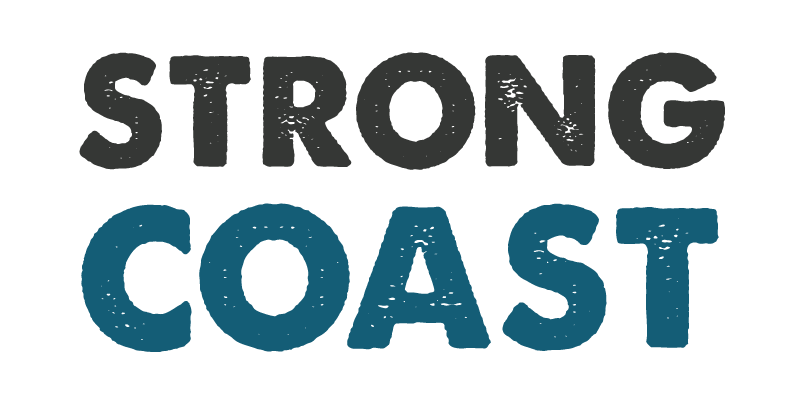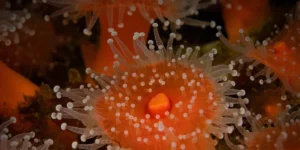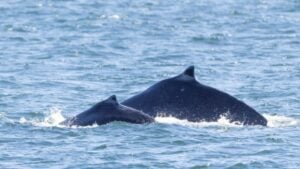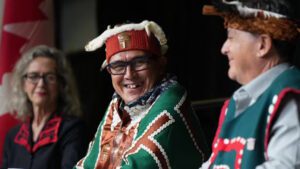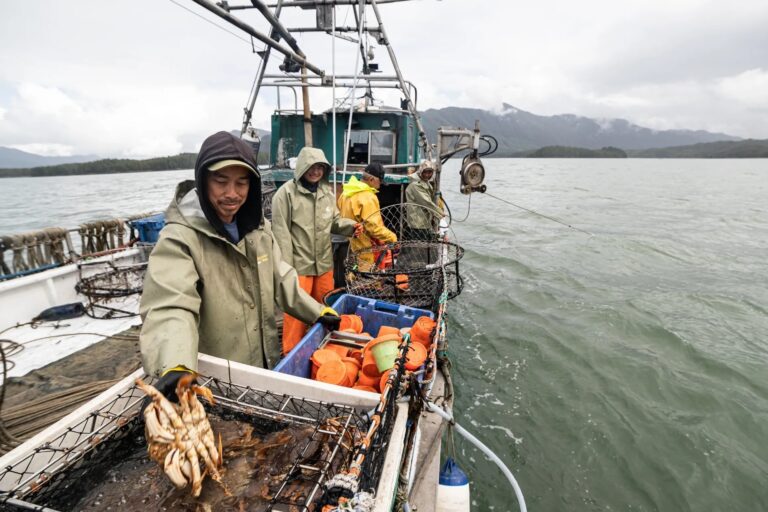
There is a thriving yet often overlooked commercial fishery in BC’s coastal waters – no, not salmon or prawns – it’s crab that is booming. Organizations like the BC Crab Fishermen’s Association are key players in this success, dedicated to ensuring the sustainability and prosperity of this vital and (vitally) delicious marine resource.
In an exclusive video interview with Megan Eadie, the Executive Director of the BC Crab Fishermen’s Association, we talked about the story behind the flourishing crab fishery, and why she thinks this success is not necessarily guaranteed in the future.
“I don’t think people know quite as much about crab, even though Dungeness crab is really big in BC,” Eadie explained to us at the BC Young Fishermen’s Network Gathering at Vancouver Island University in Nanaimo last month. “As a fishery, I don’t think we’re terribly connected to it, but it’s a huge fishery on our coast.”
“The BC Crab Fishermen’s Association represents commercial crab fishermen in BC. We do that by helping to market crab, working with the federal government on fisheries management, and striving to make the crab fishery as sustainable as possible.”
Megan Eadie, Executive Director of the BC Crab Fishermen’s Association
Her organization aims to change that relationship by connecting consumers with the harvesters who bring crab to their table. “The BC Crab Fishermen’s Association represents commercial crab fishermen in BC,” Eadie says. “We do that by helping to market crab, working with the federal government on fisheries management, and striving to make the crab fishery as sustainable as possible.”
“Crab populations have seemed to be strong in BC for quite a long time,” she tells us. The 2021 commercial landed value alone was $150.5 million – nearly twice as much as the average previous five years – spread across 220 vessels and 850 crew members. That averages out to over $700,000 per vessel.
“There’s more of a market for Dungeness crab in the last little while than there has been in the past.”
Megan Eadie, Executive Director of the BC Crab Fishermen’s Association
Eadie credits this success to strong market demand and the careful management of crab populations. “There’s more of a market for Dungeness crab in the last little while than there has been in the past,” she says, adding much of it is exported, and she would love to see the market grow in the province.
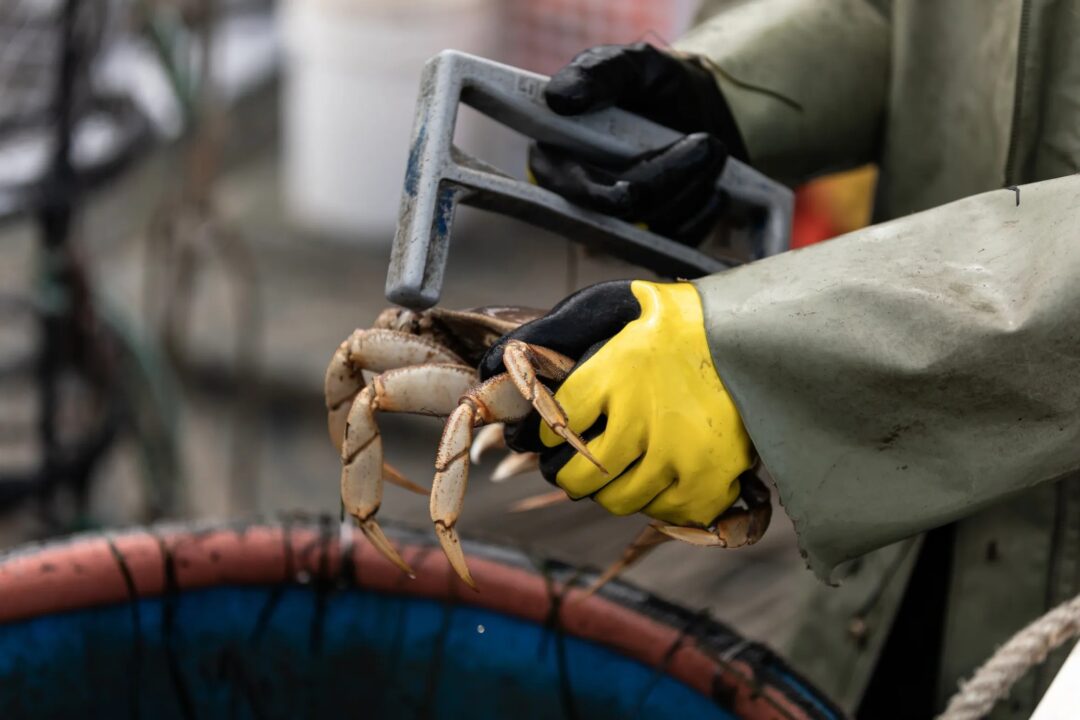
Crab harvesters follow the ‘three S model’ of sustainable management: size, sex, and season. “We can only harvest crab of a certain size, can’t harvest female crab, and only fish during certain times of the year,” Eadie explains.
Each commercial crab vessel is outfitted with an advanced electric monitoring system and records their trap locations with RFID (Radio Frequency Identification) tags. Area A crabbers in northwest BC were, in fact, the first fleet in North America to have its fishery 100% video monitored. The organization also works closely with conservation efforts, including ghost (or lost) gear retrieval and supporting crab science research.
Area A has been running its own soft-shell sampling program for 20 years to determine when the major crab moult occurs in Hecate Strait. The completion of the crab moult then determines the re-opening date of the crab season.
Despite the sustained success, Eadie and her fellow crabbers are preparing for possible changes in the fishing industry. Specifically, she thinks marine planning and marine protected areas (MPAs) are pressing concerns for crab harvesters, which is why Area A crabbers have been heavily involved in the consultation process.
“A lot of MPAs do allow fishing of different types, so if crab fishing is allowed to continue in some of these areas, that would be really beneficial because we understand that marine conservation is incredibly important.”
Megan Eadie, Executive Director of the BC Crab Fishermen’s Association
“The more we restrict where we’re able to fish, the more pressure changes to other locations,” she says, emphasizing the need for meaningful consultation with stakeholders in marine planning processes.
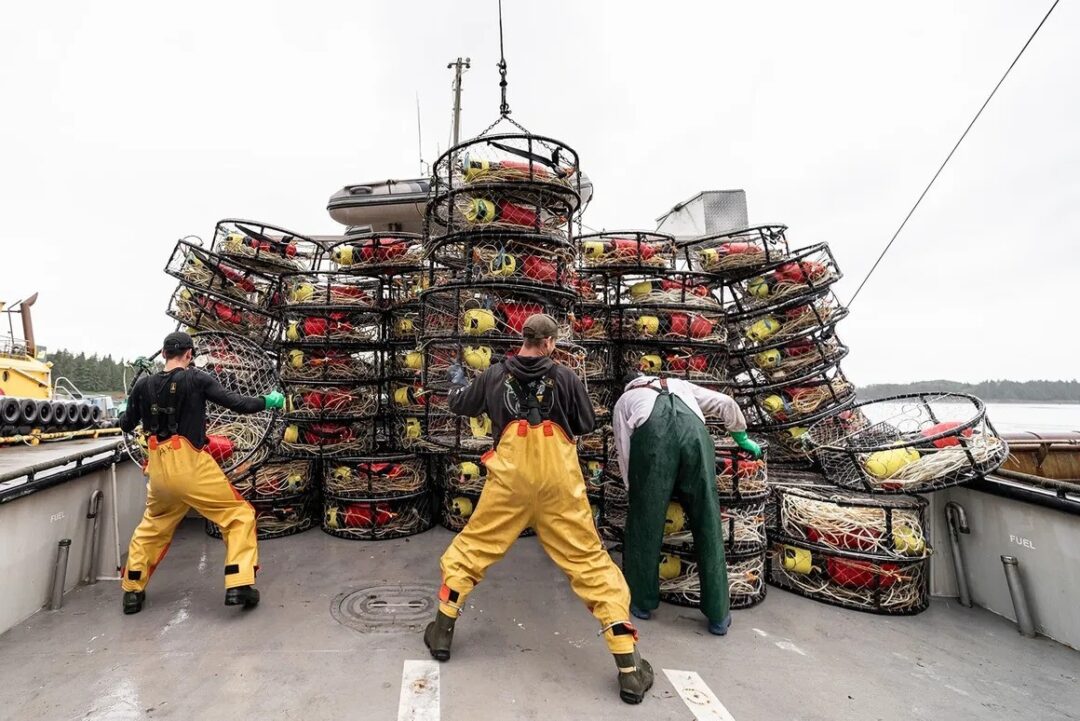
“We definitely want to be consulted more about marine protected areas,” she adds, going on to say her organization plans to be involved in upcoming Fisheries and Oceans Canada consultations to weigh in on the future of MPAs here on the West Coast.
“A lot of MPAs do allow fishing of different types, so if crab fishing is allowed to continue in some of these areas, that would be really beneficial because we understand that marine conservation is incredibly important,” she says.
Eadie hopes that amidst the industry changes, her organization can do more to highlight crab culture in BC, because there is a lot to celebrate. “It can be a very social event and can be very messy and fun,” she says, adding a community crab boil can be a great way to meet your local harvester.
BC Crab has hosted large public events like False Creek Crab Fest in Vancouver and Prince Rupert’s second annual Dungeness crab-eating contest this past summer. To attend future crab harvesting events in your community, visit the BC Crab Fishermen’s Association website: https://weheartbccrab.ca/.
Published with permission from The Skeena.
